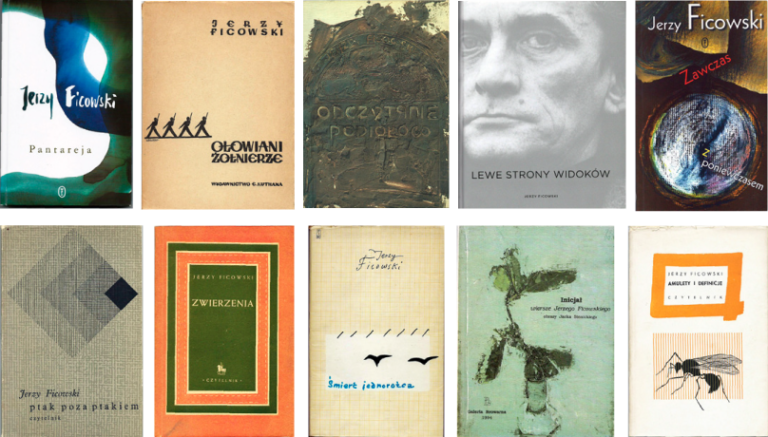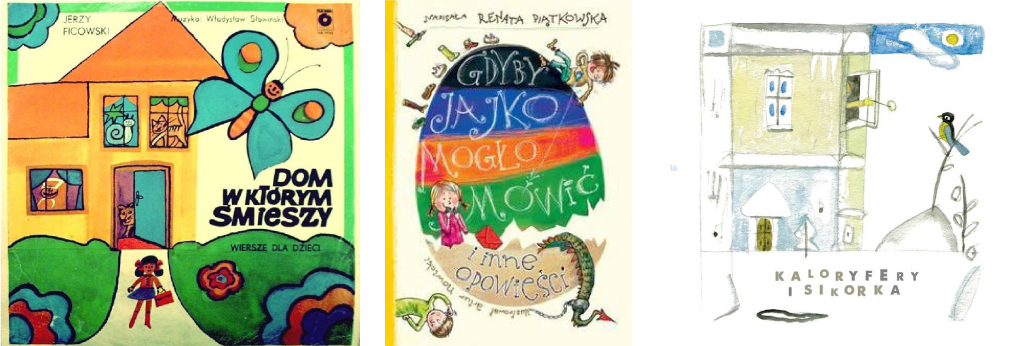POETRY

The author of A Reading of Ashes considered himself to be primarily a poet. His poems have filled over 20 volumes, including original collections and individually selected compilations. However, his recognition and appreciation as a poet did not come immediately. This may be because, as Anna Kamieńska noted, Ficowski “is impossible to classify.”
CHILDREN’S LITERATURE

Ficowski believed childhood to be everyone’s “creation of the world”. It is no surprise that he published over a dozen books for the youngest readers, in which he would often use ideas from Gypsy folk tales. Many of Ficowski’s poems for children were inspirited by conversations with his daughters.
Prose

Although Ficowski did not consider himself a prose writer, he was successful as one. Not only did he prove himself as an essayist when writing about Gypsies, Schulz and Wojtkiewicz, but he was also able to compose dream-like stories and recount folk tales he had heard from an old woman. This was yet further proof of his literary versatility.

By pursuing this fascination, Ficowski (whom Jerzy Jarzębski called a “loving critic”) gave the writer from Drohobycz a “surrogate life”.

He dedicated one of his poems to Wojtkiewicz, and later an entire book, in which he talks about the artist’s life, writing, paintings and the characters inhabiting those paintings, creatures “cast into helplessness of orphanhood.”

This experience laid the foundations for his pioneering books on Gypsies, enabled him to translate Papusza’s poetry and provided inspiration for his own work
TRANSLATIONS

A fascination with the different and the distant was also a driving force behind Ficowski’s translation work. He would take on anonymous or little known poets as eagerly as those who made up the literary canon. His lifetime achievement as a translator was recognised by two of the most distinguished Polish literary awards.
Songs

“I try to do it as well as I can,” Ficowski used to say about writing song lyrics, which his wife Elżbieta often co-authored. And even though he treated them as “intermissions” in his proper work, they gained him recognition. Some of them received awards at festivals in Opole and Sopot, and many of them won lasting popularity – with Jadą wozy kolorowe achieving the greatest success.
